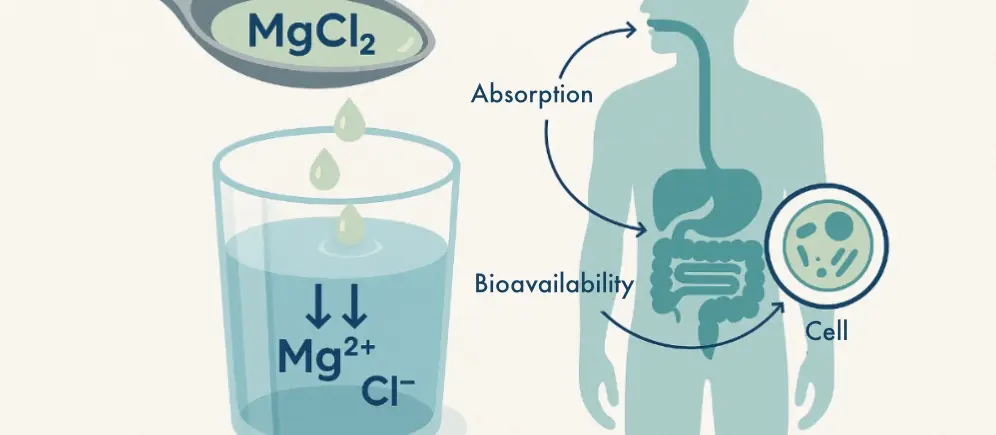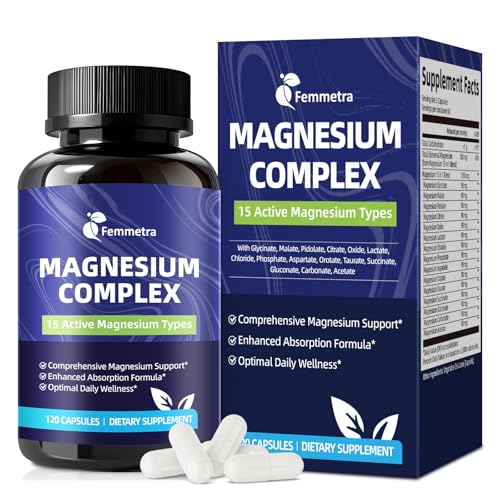It's not just another nutrient on the label; magnesium is essential for over 300 reactions in your body, from keeping your heart beating steadily to helping you unwind after a long day. The good news? Understanding magnesium deficiency is the first step to feeling more vibrant, and nature has stocked your kitchen with plenty of ways to fix it.
If you've ever felt like your energy is zapping out mid-afternoon, or you're dealing with those pesky muscle cramps that show up at the worst times, you might be low on a tiny powerhouse mineral: magnesium. Let's dive into what causes this sneaky shortfall, the signs to watch for, how common it really is, and some delicious, natural cures to get you back on track.
What Causes Magnesium Deficiency?
Magnesium deficiency, also known as hypomagnesemia, sneaks up when your body doesn't get or hold onto enough of this mineral. At its core, it's often tied to what (or what not) you're eating. Modern diets heavy on processed foods strip away magnesium, leaving you with refined grains and snacks that offer little nutritional punch. Soil depletion from industrial farming plays a role too; our veggies and fruits just aren't as mineral-packed as they used to be.
But it's not all about your plate. Your gut and kidneys are key players in magnesium absorption and retention. Conditions like chronic diarrhea, celiac disease, or Crohn's can lead to poor uptake from the intestines, while kidney issues cause excessive loss through urine. Diabetes is a big culprit here, as high blood sugar ramps up urinary magnesium excretion, creating a vicious cycle with insulin resistance. Alcoholism speeds things up too, irritating the gut and boosting excretion. And don't overlook everyday stressors; chronic anxiety or heavy exercise can deplete stores faster than you can say "relax." Certain meds, like diuretics or proton pump inhibitors for acid reflux, can tip the scales as well.
In short, it's a combo of diet, lifestyle, and health factors. The silver lining? Spotting it early means you can course-correct with simple changes.
Spotting the Symptoms
Magnesium deficiency doesn't always scream for attention; it often whispers its symptoms through subtle clues that mimic everyday fatigue. Early signs might include tiredness that coffee can't fix, generalized weakness, or that foggy feeling where focus just slips away. Muscle cramps and twitches are classic red flags, especially at night or after workouts, thanks to magnesium's role in nerve signaling and muscle relaxation.
As levels drop further, things get more serious. You might notice irregular heartbeats (arrhythmias), high blood pressure, or even migraines that pound relentlessly. Mood dips into irritability, anxiety, or apathy, and sleep becomes elusive despite your best efforts. In severe cases, it can lead to tremors, seizures, or numbness (paresthesia), and it's often linked to low potassium or calcium, compounding the chaos. Bone health suffers too, raising osteoporosis risk as magnesium helps regulate calcium. If these sound familiar, chat with your doctor; a simple blood test can confirm if magnesium is the missing piece.
How Common Is Magnesium Deficiency?
You might think magnesium deficiency is rare, but it's more like an under-the-radar epidemic. In the U.S., about half the population falls short of the recommended 310-420 mg daily intake, with many hovering around 200-275 mg. Subclinical deficiency (low but not critically so) affects up to 15% of folks, and it's even higher in at-risk groups.
Hospital patients fare worse: around 10% show overt hypomagnesemia, jumping to 65% or more in intensive care units. Among those with type 2 diabetes, prevalence hits 11-48%, fueling the chronic disease cycle. Older adults, alcoholics, and folks on certain meds are prime targets too. Globally, it's a public health nudge: low magnesium ties to rising rates of heart disease, diabetes, and metabolic woes. The fix? Prioritizing it now could prevent bigger headaches later.
Natural Cures: Replenish Your Magnesium
The best part of tackling magnesium deficiency? It's deliciously doable with whole foods that nourish your whole body. Aim for the daily goal through a colorful plate, and consider supplements if your doc gives the green light. Here's how to load up:
Magnesium-Packed Foods
Nature's bounty is your ally. Focus on these gems for easy wins:
- Leafy Greens: Spinach tops the list with 157 mg per cooked cup, plus vitamins A and K for bonus glow. Swiss chard and kale follow close behind.
- Nuts and Seeds: Pumpkin seeds deliver 156 mg per ounce (37% of your daily needs!), while almonds offer 80 mg. Toss them in salads or snack solo.
- Legumes and Whole Grains: Black beans pack 120 mg per cup, and quinoa adds 64 mg. Swap white rice for brown or lentils for a hearty boost.
- Fruits and More: Avocados (58 mg per medium fruit) and bananas (32 mg each) are portable picks, while dark chocolate (70% cocoa) sneaks in 64 mg per ounce. Yogurt rounds it out with 47 mg per cup.
- Blackstrap Molasses: 1 tbsp contains 10% of the daily value of magnesium, as well as iron, calcium, potassium, and B6.
Pro tip: Pair with vitamin D-rich foods like fatty fish for better absorption, and sip mineral water for an extra 100+ mg daily. A sample day? Spinach smoothie breakfast, almond-topped quinoa lunch, and black bean dinner could net you 300+ mg effortlessly.
When to Consider Supplements
If diet tweaks aren't enough (say, due to absorption issues), supplements shine. Opt for well-absorbed forms like magnesium glycinate for calm or citrate for digestion. Start low at 200-350 mg elemental magnesium daily, split doses to avoid tummy upset. Always loop in your healthcare provider, especially if you have kidney concerns, to dodge interactions or overload. Food first, but supplements can be a smart sidekick.
Magnesium Complex for Women Men 1350mg 15 in 1 Pure Magnesium Supplement with Magnesium Glycinate Citrate Malate Taurate Oxide Magnesio, for Muscle, Heart, Relaxation & Nerve Support, Vegan 60 Days
HIGH ABSORPTION POTENT 15 MAGNESIUM SUPPLEMENT – Our Magnesium Complex features fifteen bioavailable forms of magnesium: Glycinate, Citrate, Malate, Taurate, Oxide, Carbonate, Chloride, Orotate, Aspartate, Pidolate, Lactate, Phosphate, Succinate, Gluconate, and Acetate. Unlock the benefits of magnesio, from supporting normal energy metabolism, bone and muscle function, and mental performance, to overall wellness. Make Femmetra Magnesio Complex a part of your daily routine and a healthy lifestyle
RELAXATION & SLEEP SUPPORT – Magnesium Glycinate, Magnesium Taurate, Malate, and Pidolate work together to support relaxation and maintain normal nervous system function. These gentle, highly absorbable forms help ease occasional muscle tension, calm restlessness, and encourage a sense of tranquility. By supporting balanced nerve signaling, neurotransmitter production, and muscle relaxation, they create optimal conditions for falling asleep naturally and enjoying deep, restorative rest.*
ENERGY & MUSCLE-BONE FUNCTION – Magnesium Malate, Phosphate, Carbonate, Lactate, Succinate, and Aspartate work together to support normal energy production, maintain healthy bone structure, and promote proper muscle function. These highly absorbable forms help convert food into energy, support bone strength, and aid normal muscle contraction and relaxation. By supporting musculoskeletal health and sustaining energy during daily activity, they help maintain endurance and overall wellness.*
HEART & ELECTROLYTE BALANCE – Magnesium Citrate, Chloride, Orotate, Oxide, Gluconate, and Acetate work together to help maintain normal heart rhythm, support cardiovascular function, and promote proper electrolyte balance. These highly absorbable forms contribute to healthy nerve signaling, muscle contraction, and hydration, helping regulate fluid and mineral levels. By supporting heart function, normal blood pressure, and electrolyte balance, they help maintain overall cardiovascular wellness.*
PURE & HIGH-QUALITY INGREDIENTS – Made with carefully selected, premium ingredients in GMP-certified facilities, our magnesium supplement undergoes third-party testing to ensure purity, potency, and safety. This non-GMO formula is free from common allergens, such as dairy and gluten. Designed for convenient daily use, two vegan capsules deliver 24/7 support to help maintain energy, focus, and overall wellness throughout your day. Each bottle contains 120 capsules, providing a full 60-day supply.
View on AmazonYour Path to Magnesium Magic
Magnesium deficiency might be common, but it's not your destiny. By tuning into causes like poor diet and stress, heeding symptoms from cramps to mood slumps, and embracing nutrient-rich eats, you can reclaim that steady energy and inner peace. Start small: Add a handful of seeds today or sauté some spinach tonight. Your body will thank you with fewer aches and more "ahh" moments. Feeling inspired?

